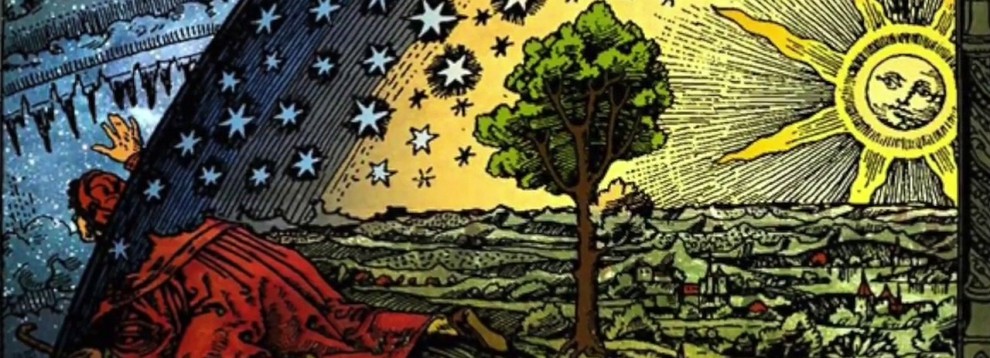So here we go again with my weird rants, that might irritate some people.
Jason Coker on the pastoralia blog has a very interesting post called ‘the Lords prayer as a political manifesto‘. It’s about a very important subject that I’m struggling with myself at the moment, but I’m not going to repeat his point, you’ll have to read it for yourself (you really should!)
What I want to discuss is (in my opinion) probably one of his most controversial paragraphs up to date, at least from a more or less evangelical point of view.
It’s time to grow up. As long as the religious concept of evil remains limited to the personification of a mythical creature and our ability to imagine better possibilities remains limited to a mythical place, we will be forever relegated to the individualized realm of dualistic pietism.
We must follow Christ and the prophets in moving beyond our childish metaphors and concretely name evil for what it really is – starvation, exploitation, exclusion, vengeance, violence, and the like – so we can name goodness for what it really is: equality, provision, peace, and so forth.
My first reaction is one of protest. Calling satan a mythical creature and heaven a mythical place at first sounds like some kind of liberal theology that tries to do away with all things supernatural. But maybe that’s just how my modern bias tends to read it.
The use of the word ‘mythical’ here is interesting, because in a modern discourse its use would mean something negative. But that’s not the case, as Jason makes clear in the comments in an answer to his use on the ‘m-word’:
Well that’s a big question, but a fair one since I’m the one that dropped the m-word. I have no problem with the idea of realms of existence beyond our field of perception. Such a thing has already been demonstrated in theory by physicists.
However, I think we actually know almost nothing about that sort of reality. Moreover, I think the Bible communicates about those realities along the continuum of myth and folklore – which is not a bad thing, in my opinion, as long as you don’t confuse myth and folklore with objective facts. In other words, I think those stories represent real knowledge…just not the kind of knowledge we wanted it to be in the Modern age.
Especially with the note of Jamie Arpin-Ricci that “mythical” does not equal “fictional” and that Something can be mythical and still be true, I think this is a very important discussion. Tolkien and Lewis already spoke of Jesus as ‘true myth’, but I think it’s time to stop the pejorative use of words like myth, or even fable. (And I’m also talking here to people who use ‘myth’ as a synonym for ‘lie’ as Greg Boyd does in book titles as ‘the myth of a Christian nation’ and ‘the myth of a Christian religion’)
We cannot describe everything in modern categories of scientific knowledge… The fact is, that some of the most important things are far beyond fact and measurement. Creation, atonement, the nature of God, the nature of evil and the powers, the Kingdom in its full realisation/heaven, the final judgement, etc… are all things that are too big too describe with our language and the concepts we know from this world. We need to use methaphor and -yes- myth, because our modern conceptions of absolute truth are inaccurate. This is where Derrida and the medieval mystics meet: language nor science could ever descibe those things. Not because they’re not true, but because they’re more true than our so-called ‘scientific’ knowledge…
So all our methaphors fail. All our ways of decribing and imagining fail too, and indeed, if we think that our litteralised methaphorical stories about satan and heaven are all there is to say, we miss a lot. We cannot speak about these things with more scientifically accurate precision than my pet mice can speak about the openoffice program I’m using.
So what I’m advocating is the opposite of the modern ‘liberal’ idea that discards anything that’s non-scientific. Myth, methaphor and parable are the only ways to speak about the things that are most real! And still it’s not at all about speaking of those things, but about living the Life, and letting Christ transform us. Knowledge, be it scientific or mythologic, is not what saves us, except when we are gnostics maybe, but in reality it can only describe things.
If all we have is a faith in theory, we only have faith in theory, and are left with nothing. I am reminded here of the words of a bend from Antwerp called ‘think of one’ who sing ‘tzen gien fabels ginen thejorie’ (‘it’s no fable, and no theory’) in our beautiful dialect, which in turn reminds me of the working class people I’ve worked with. They used the word theory in a pejorative way, and did not believe that anything mattered that could not be used practically… If we don’t have the life of the resurrection in us, what use is there in all our theology?
So myth can be the only way to communicate something that’s truer than any scientific language can contain, and yet truth that’s not incarnated into our lives is not of worth…
Does any of this make sense?
Shalom
Bram
 ogging here, and also back with a reboot of my monthly collection of interesting stuff I’ve read elsewhere on the web.It’s either a complete coincidence or a humourous plot of the Divine that there are so much Orthodox fairies in this collection, but it looked like a cool title.
ogging here, and also back with a reboot of my monthly collection of interesting stuff I’ve read elsewhere on the web.It’s either a complete coincidence or a humourous plot of the Divine that there are so much Orthodox fairies in this collection, but it looked like a cool title.

